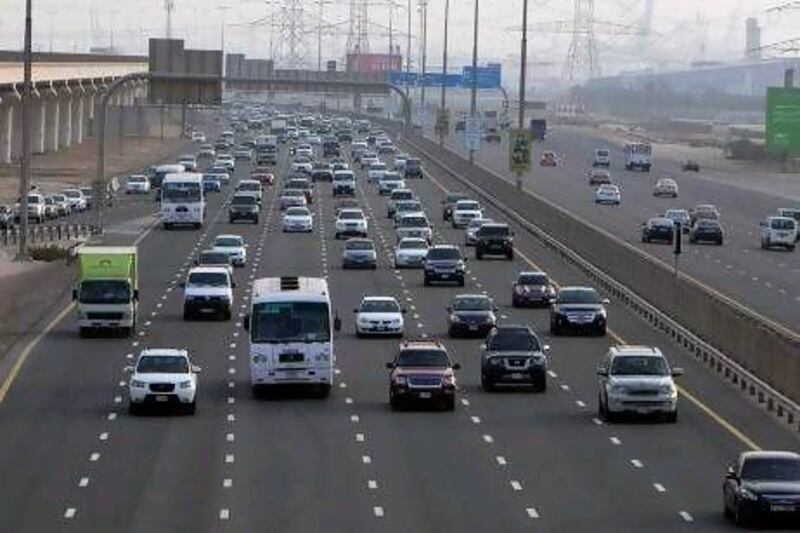The move to require all Abu Dhabi Government employees to live in the emirate has received mixed reactions from experts and residents.
Road safety experts have no doubt that it will result in less congestion and fewer traffic accidents.
“Statistically speaking, the number of road accidents has a direct correlation with vehicular volume,” said Dr Abdulilah Zineddin, a road safety expert based in Abu Dhabi. “The more people travel, the higher the probability there will be crashes.”
Dr Yasser Hawas, civil engineer and professor of transport and traffic engineering at United Arab Emirates University, agreed.
“The longer the travel time the higher the number of accidents,” he said. “Living in a place close to work and travelling within a smaller community will help reduce congestion and minimise travelling on the major arterial roads, where most of the serious injuries occur.”
According to Abu Dhabi Police, about 10,600 vehicles travel from Dubai to Abu Dhabi daily, with the peak hours between 6am and 7am.
Enforcing lower speed limits and increasing the number of patrolling officers has already led to a significant drop in traffic accidents along the Dubai-Abu Dhabi highway. However, traffic authorities agree that a decline in the number of commuters would reduce the number further.
“A number of factors contribute to a driver’s ability to drive, including fog, which we often see in the morning, fatigue and stress,” said Col Hamad Al Baloushi, head of traffic in the external region for Abu Dhabi Police. “The social dynamic will improve, as people will have time for themselves and their families.”
However both experts and residents are concerned that the move may not be in everyone’s best interests, citing married couples where each spouse works in a different emirate or those who cannot afford living in Abu Dhabi as examples.
“I would like to see the Abu Dhabi Government provide public transportation to help these people,” Dr Zineddin said. “I hope they’ve exhausted all other options before limiting people in terms of where they want to live.”
On average, people living in major cities in the West travel between 45 minutes and an hour to get to work, Dr Zineddin said, not making it too much different from the Dubai–Abu Dhabi commute.
Currently, the only way of travelling between the emirates is by private car, public bus or taxi.
“It is so hot here to the point that people are discouraged from using [the bus],” Dr Hawas said, adding the bus was not convenient. “Maybe if there was a wide, accessible network, it would work. But public transportation here is still not very mature.”
Bassel Assi is an electrical engineer who makes the commute to Abu Dhabi daily. Despite the time it takes away from his family and the back pain it causes him, he insists on living in Dubai for its attractions and affordable rents.
“My wife is happy in Dubai and the public transportation system here makes it easy for her to move around, whether it’s through taxis or by the metro,” he said. “This is a personal choice. Everyone has their own circumstances, and choosing where to live is a private decision.”
Mr Assi said the only way he would consider moving to Abu Dhabi was if his company gave him a raise, or if rents in Abu Dhabi dropped.
Miranda McKee, a Canadian expatriate who worked for a semi-government company based in Abu Dhabi, made the commute for a year and a half before deciding it was time to find a new job.
“They told me this was coming and I was looking for a place and [the cost] of everything was unreasonable if I wanted to maintain the same standard of living,” she said. “Some colleagues lived on the outskirts of Abu Dhabi but those areas were kind of isolated and as an expat with no family I wanted to live in the city.”
Ms McKee, 29, saidshe could see both sides of the argument.
“You probably would have a better quality of life,” she said.
“But at the same time if you have your family and are settled in Dubai, that’s a big compromise.
“It’s really an unfortunate way to go about it. Developing a train or public transport system would be a much better approach than just demanding people move,” Ms McKee said.






